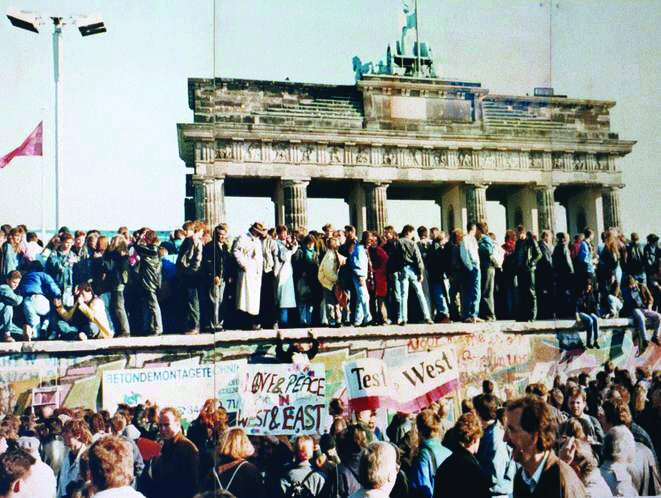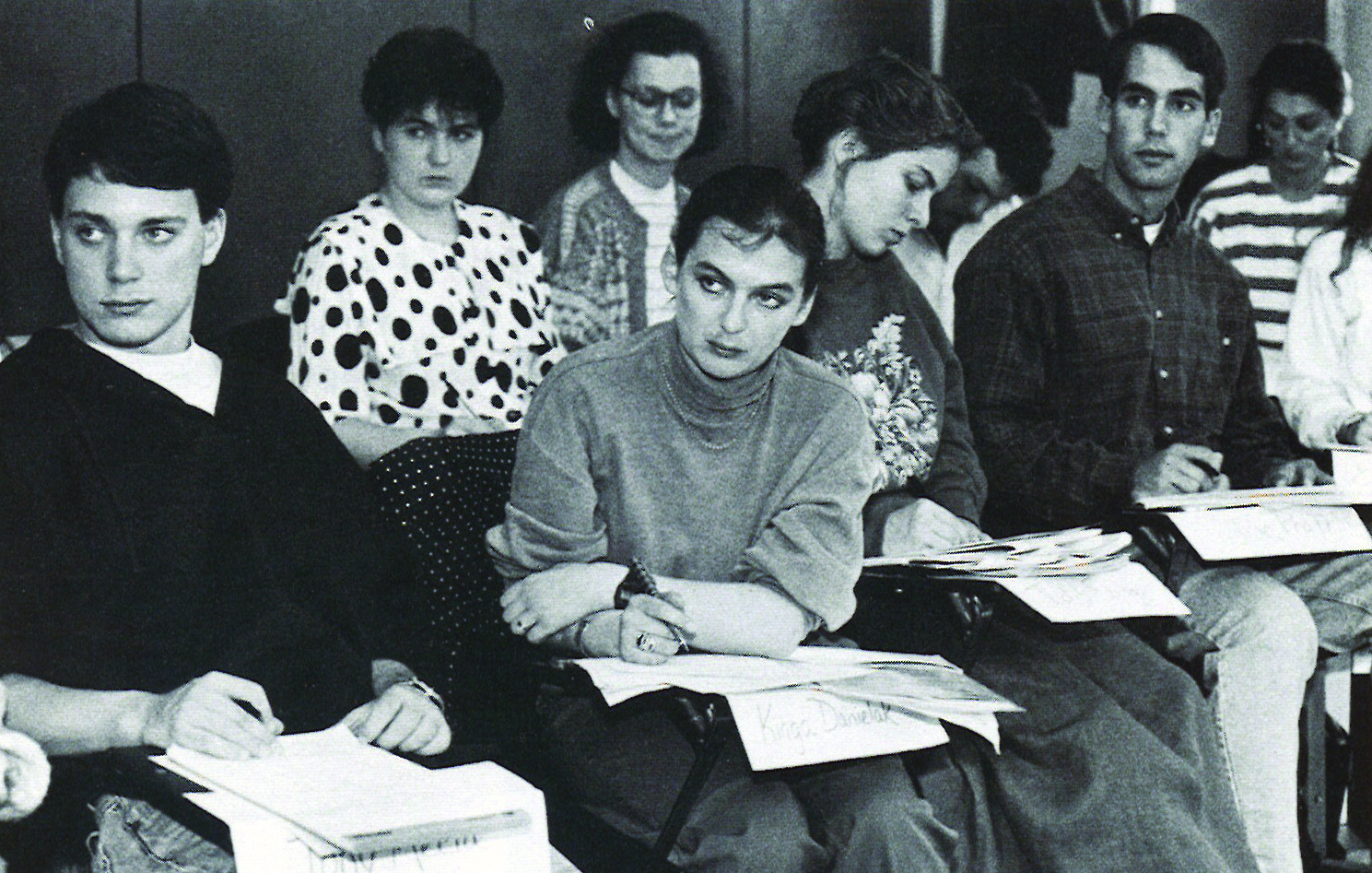
The following story is part one in a TFAS series on the 25th Anniversary of the fall of the Berlin Wall. To read part two, click here.
The fall of the Berlin Wall holds a special place in TFAS history, and not only because it symbolizes a triumph of freedom over oppression. It’s also significant because the wall’s demise ultimately allowed TFAS to fulfill one of its six founding objectives – to pursue opportunities for international programs that could plant the ideas of individual liberty abroad in places that had historically provided the least fertile soil. When the wall finally came down in 1989, TFAS began recruiting students from former Soviet Bloc countries and laying the foundation to build its international program abroad.
As we approach the 25th Anniversary of the Fall of the Berlin Wall, TFAS will take a look back at the lessons from the wall and the steps that must be taken to ensure that another symbol of tyranny is not rebuilt in its place.
Remembering the Berlin Wall

What universal lesson did the world learn from the fall of the Berlin Wall? That liberty is forever emergent, and tyranny forever destined for the “dustbin of history?” Reflecting on the 25 years that have passed since this world-changing event, we must assess whether the demise of the 20th century’s symbol of the divide between freedom and tyranny was a true turning point, or simply a swing of the political pendulum that may now be swinging back toward oppression.
When President Reagan refused the advice of his advisors that he should remove from his Checkpoint Charlie speech the admonishment to “tear down this wall!,” he was excoriated by the establishment press back home. Anthony Lewis of the New York Times called the speech “primitive.” Lewis’ colleague at the Times, Tom Wicker, called it “smug.” Historian Henry Steele Commager said, “It was the worst presidential speech in American history, and I’ve read them all.” Months later, the American press had still not forgiven Reagan’s effrontery on the world stage. George Ball, a high level official in both the Kennedy and Johnson administrations, denounced Reagan’s Berlin Wall speech by referring to it as “your obsessive detestation of what you call `the evil empire.'”
Twenty five years later, it seems that it may be the establishment view of moral equivalency, rather than Reagan’s clear delineation between good and evil, that has remained. It is noteworthy that, after President Obama refused an invitation from German Chancellor Angela Merkel to mark the 20th anniversary celebration in Berlin in 2009, the administration tried to tamp down the backlash by noting that Vice President Biden had just returned from visiting Poland, Ukraine and other former Soviet Bloc countries. But Biden’s visit was actually an attempt to repair relations after pulling out of a missile defense treaty – one which would have been the only deterrent against Russia’s recent invasion of Crimea. Lessons learned in hindsight are always more painful than a threat foreseen. Still, Reagan’s vision of “peace through strength” has now given way to soft diplomacy and misplaced apologies for America’s culpability for the world’s problems, to predictable results.
Although the fall of the Berlin Wall was once declared the “end of history” and the harbinger of a new dawn of human freedom, today it hardly delineates the ideologies of left and right even in a reunified Berlin. According to Der Spiegel columnist Henryk M. Broder, “Before the fall of the Wall, East Germans valued equality most highly; for West Germans, it was freedom. In the meantime, both East and West Germans find social equality more important than freedom.”

A poll taken in 2009 showed that 49 percent of East Germans agree with the statement that “East Germany had more good than bad sides. There were a few problems, but one could live well there.” Add to that the additional 8 percent who agreed that “East Germany had predominantly good sides. People there were happier and better off than today in reunified Germany,” and 57 percent of a reunified Germany can be said to be wholly nostalgic for one of the most repressive regimes of the 20th century.
This amnesia of the East has also translated into legislative power. The party that ruled East Germany had won seats in 11 of 16 state parliaments by 2009, and had formed a governing coalition with the Social Democratic Party (SPD) in the capital. This ideological regression was also taking place within Russia, where Vladimir Putin began a program of revisionist history within the schools, once telling a conference of history teachers and professors, “We were told [by the West] you have rejected Communism and are building democracy, and we will judge when and how you have done. . . . In exchange for our disarming ideologically, we have received this abstract recipe – you become democrats and capitalists and we will control you.”
A 2013 Gallup poll asked more than a thousand citizens of 11 former Soviet states their opinion on the fall of the Soviet Union and found strong sentiment for the old Soviet system among seven of the 11 countries it surveyed. Unbelievably, 55 percent of Russians told Gallup that the dissolution of the Soviet Union had harmed Russia, and only 19 percent said that it was to their benefit.
Putin has recently underscored this propaganda triumph by declaring, “Above all, we should acknowledge that the collapse of the Soviet Union was a major geopolitical disaster of the century.” Since shutting down any opposition media and forming his own international satellite channel, should we be surprised that Putin has now cajoled a majority of Russians to share his nostalgia for the days of Soviet communism, and that much of Europe is ambivalent about the Berlin Wall?
While the Berlin Wall was only a symbol of the tyranny that lay behind the whole of the Iron Curtain, if we fail to teach the generations born since its fall about the abhorrent ideology that required its construction, we risk condemning them to future incarceration behind the next one.
This is part one in a TFAS series on the 25th Anniversary of the fall of the Berlin Wall. To read part two, click here.

